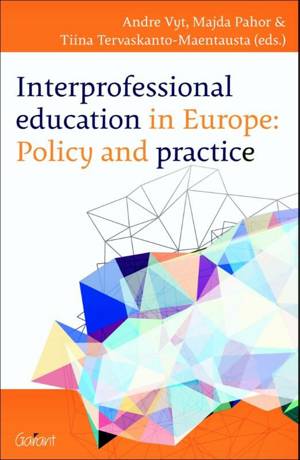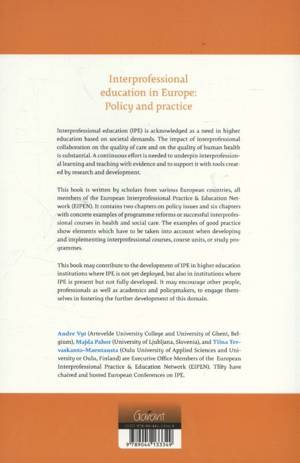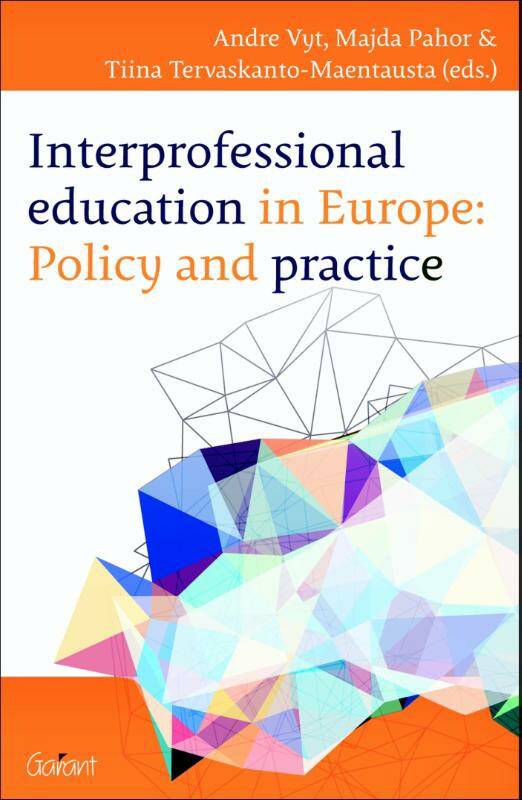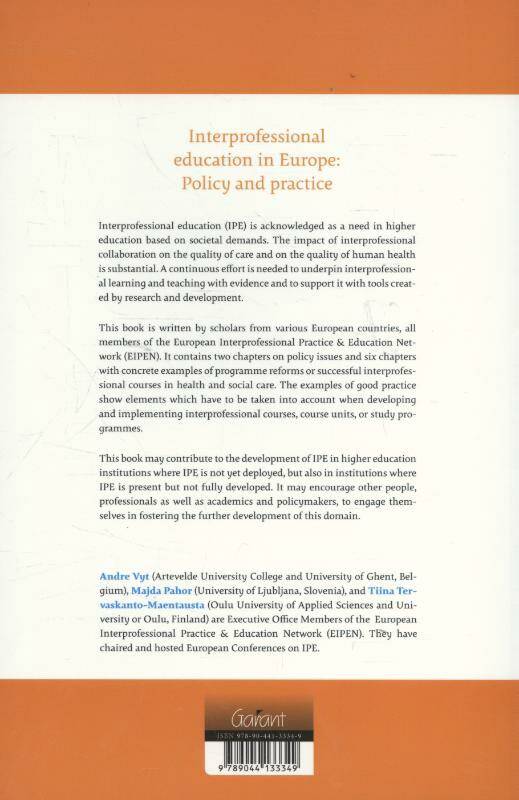
Je cadeautjes zeker op tijd in huis hebben voor de feestdagen? Kom langs in onze winkels en vind het perfecte geschenk!
- Afhalen na 1 uur in een winkel met voorraad
- Gratis thuislevering in België vanaf € 30
- Ruim aanbod met 7 miljoen producten
Je cadeautjes zeker op tijd in huis hebben voor de feestdagen? Kom langs in onze winkels en vind het perfecte geschenk!
- Afhalen na 1 uur in een winkel met voorraad
- Gratis thuislevering in België vanaf € 30
- Ruim aanbod met 7 miljoen producten
Zoeken


Interprofessional education in Europe: Policy and practice
Andre Vyt, Majda Pahor, Tiina Tervaskanto-Maentausta
Boek | Engels
€ 16,90
+ 33 punten
Omschrijving
Interprofessional education (IPE) is acknowledged as a need in higher education based on societal demands. The impact of interprofessional collaboration on the quality of care and on the quality of human health is substantial. A continuous effort is needed to underpin interprofessional learning and teaching with evidence and to support it with tools created by research and development.
This book is written by scholars from various European countries, all members of the European Interprofessional Practice & Education Network (EIPEN). It contains two chapters on policy issues and six chapters with concrete examples of programme reforms or successful interprofessional courses in health and social care. The examples of good practice show elements which have to be taken into account when developing and implementing interprofessional courses, course units, or study programmes.
This book may contribute to the development of IPE in higher education institutions where IPE is not yet deployed, but also in institutions where IPE is present but not fully developed. It may encourage other people, professionals as well as academics and policymakers, to engage themselves in fostering the further development of this domain.
This book is written by scholars from various European countries, all members of the European Interprofessional Practice & Education Network (EIPEN). It contains two chapters on policy issues and six chapters with concrete examples of programme reforms or successful interprofessional courses in health and social care. The examples of good practice show elements which have to be taken into account when developing and implementing interprofessional courses, course units, or study programmes.
This book may contribute to the development of IPE in higher education institutions where IPE is not yet deployed, but also in institutions where IPE is present but not fully developed. It may encourage other people, professionals as well as academics and policymakers, to engage themselves in fostering the further development of this domain.
Specificaties
Betrokkenen
- Auteur(s):
- Uitgeverij:
Inhoud
- Aantal bladzijden:
- 126
- Taal:
- Engels
Eigenschappen
- Productcode (EAN):
- 9789044133349
- Verschijningsdatum:
- 25/08/2015
- Uitvoering:
- Boek
- Afmetingen:
- 240

Alleen bij Standaard Boekhandel
+ 33 punten op je klantenkaart van Standaard Boekhandel
Beoordelingen
We publiceren alleen reviews die voldoen aan de voorwaarden voor reviews. Bekijk onze voorwaarden voor reviews.










